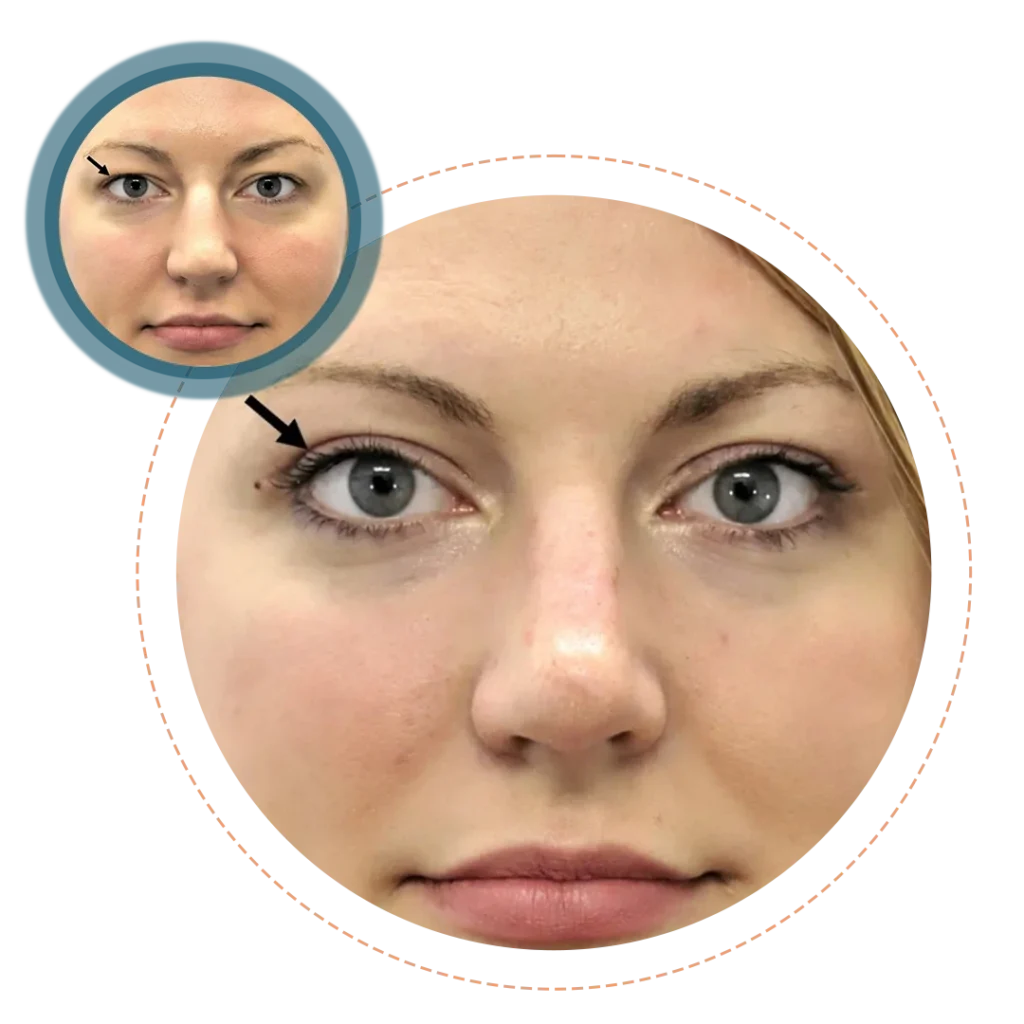
What is Blepharoplasty?
Overview Blepharoplasty, commonly known as eyelid surgery, is a cosmetic procedure designed to improve the appearance of the eyelids. This surgery can be performed on the upper eyelids, lower eyelids, or both, to address issues such as sagging skin, excess fat deposits, and wrinkles. Blepharoplasty can enhance the overall appearance of the eyes, making them look more youthful and rested. It is often sought by individuals who experience droopy eyelids that affect their vision or who wish to achieve a more aesthetically pleasing look.
Causes The need for blepharoplasty often arises due to factors like aging, genetics, and lifestyle. Over time, the skin around the eyes loses its elasticity, and fat deposits may accumulate, leading to sagging eyelids and under-eye bags. These changes can make a person look tired, older, and in some cases, interfere with their vision.
Solutions Blepharoplasty addresses these concerns by removing excess skin, tightening the underlying muscles, and repositioning or removing fat deposits. This results in a smoother, firmer, and more youthful appearance of the eyelids. By correcting droopy or baggy eyelids, blepharoplasty not only enhances the aesthetic look of the eyes but can also improve peripheral vision obstructed by sagging upper eyelids.
Types of Treatments

Upper Eyelid Surgery
Upper eyelid surgery focuses on removing excess skin and fat from the upper eyelids. This type of blepharoplasty is often sought to correct droopy eyelids that may impair vision and create a tired appearance. The procedure involves making an incision along the natural crease of the upper eyelid, allowing for the removal of excess tissue and tightening of the muscles.

Lower Eyelid Surgery
Lower eyelid surgery addresses issues such as under-eye bags, wrinkles, and sagging skin. An incision is typically made just below the lower lash line or inside the lower eyelid. Through this incision, excess fat can be repositioned or removed, and the skin can be tightened to create a smoother, more youthful appearance.

Double Eyelid Surgery
Double eyelid surgery, or Asian blepharoplasty, creates a crease in the upper eyelid to form a "double eyelid." This type of surgery is popular among individuals of East Asian descent who seek to enhance the appearance of their eyes by adding a natural-looking crease. The procedure involves making a small incision along the desired crease line and removing or repositioning tissue to create the fold.
Surgery Procedures and Recovery Time
Procedure The blepharoplasty procedure typically begins with the administration of anesthesia to ensure patient comfort. For upper eyelid surgery, an incision is made along the natural crease, while for lower eyelid surgery, the incision is made just below the lash line or inside the eyelid. Excess skin, fat, and sometimes muscle are removed or repositioned. The incisions are then closed with sutures, and small bandages may be applied to support the healing process.
Recovery Recovery from blepharoplasty varies, but most patients can return to normal activities within 10 to 14 days. Initial swelling and bruising are common and can be managed with cold compresses and prescribed medications. It is important to follow post-operative care instructions, such as avoiding strenuous activities, protecting the eyes from the sun, and keeping the head elevated to reduce swelling. Full results are typically visible after a few weeks to a few months, as the swelling subsides and the tissues heal completely.
Video About Treatment
FAQ
Blepharoplasty is a cosmetic surgery that improves the appearance of the upper and/or lower eyelids by removing excess skin, fat, and muscle.
The procedure typically takes 1 to 3 hours, depending on whether both upper and lower eyelids are being treated.
The cost varies but generally ranges from $3,000 to $5,000, depending on the surgeon’s experience and location.
Risks include infection, bleeding, dry eyes, difficulty closing the eyes, and scarring. Complications are rare when performed by a qualified surgeon.
Initial recovery takes about 10 to 14 days, with full recovery and final results visible after a few weeks to a few months.
Yes, blepharoplasty is common among men who wish to address sagging eyelids and under-eye bags.
Types include upper eyelid surgery, lower eyelid surgery, and double eyelid surgery.
Blepharoplasty is generally safe when performed by an experienced and qualified surgeon.
Preparation includes medical evaluations, stopping certain medications, avoiding smoking, and following the surgeon’s pre-operative instructions.
Expect some swelling, bruising, and discomfort initially, which can be managed with prescribed medications. Following post-operative care instructions is crucial for optimal healing.